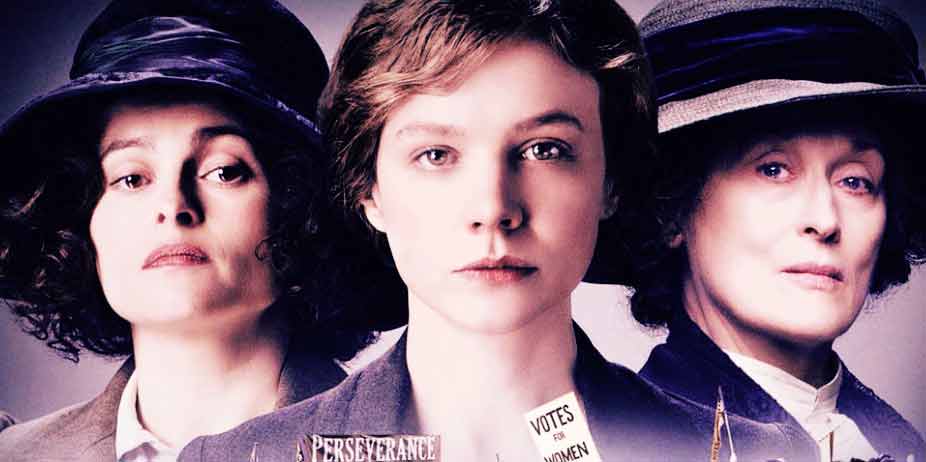 Suffragette (2015)
Suffragette (2015)
Some movies take awhile to really sink in, and Suffragette is one of them. It deeply moved me at the time but stuck around in my head for days after, as I started processing how truly good it is in a sense that it shines a light into the past. It is not a favorable light, but it shows the extraordinary resilience of women and the price some of them paid for the vote.
Maud Watts (Carey Mulligan) is a practical woman. She goes to work each day, keeps her head down, avoids eye contact with her boss, and returns home at night to her loving husband and adorable child. But one day she happens to overhear an appeal by a leading suffragette (Romola Garai) to appear before Parliament and give a speech about the working conditions for women of the lower class. On a whim, she decides to accompany her new friend Violet (Anne Marie Duff) there... but the morning of the speech, Violet has been so badly beaten by her abusive husband that she cannot speak. Maud gives an impromptu speech instead, hoping it will make a difference.
It doesn't. The Prime Minister listens and promptly disallows the evidence in his next handling of Parliament. Caught in the midst of the rally, which breaks out into loud boos of protest, Maud is hauled off with several others to spend a week in jail as punishment, alongside the more radical suffragettes such as Edith Allen (Helena Bonham Carter). When she comes out, her life changes... forever.
This film has had some pushback for its emphasis on white feminists and its neglect of some of the more radical terrorist activities of the suffragettes during the period, but on its own it's a very moving and remarkable project. The acting is wonderful and the story doesn't shy away from showing the challenges of women in all walks of life at the time... even the more progressive husbands fall back on social expectations from time to time. Therein lies one potential flaw... there's literally no man on their side, none that appear to support the movement, and as such, it leaves the impression that all of society at the time was avidly against women having the vote. That is not the case, and it reduces men to the villains of the piece. Still, despite that, it stirred my indignation and serves as a reminder that there are still places in this world where women are not equal and do not have the vote.
The screenplay is tight, the costuming is lovely, and it features a cameo from Meryl Streep as the suffragettes' leader. It also brings up some great discussion potential on whether violence against the government is justified, and if it is even morally right depending on the circumstances.
Sexual Content:
Women are stripped in prison (we see partial side nudity,
and brief backside nudity) to humiliate them. Implications are that Maud was
sexually abused by her boss when she was a young teen; he is doing the same to
another girl (she walks in on him aggressively kissing the girl).
Language:
One f-word.
Violence:
Women are silenced -- brutally. Policeman bash them to the
ground, punch them in the stomach, kick them, and drag them into police wagons.
They force-feed them in prison with tubes down their throats. Women incite
violence toward the establishment -- bombing mail boxes and blowing up the Prime
Minister's new mansion. A woman runs out in front of a racehorse as a protest
and is killed.
Other:
Varying degrees of threats, intimidations, and brutal
tactics combined with sexism make this a tough watch.
